A Bear Walks Into A Bar...

Sorry For Not Writing Sooner
It's amazing how time flies! Some brief, overdue updates.
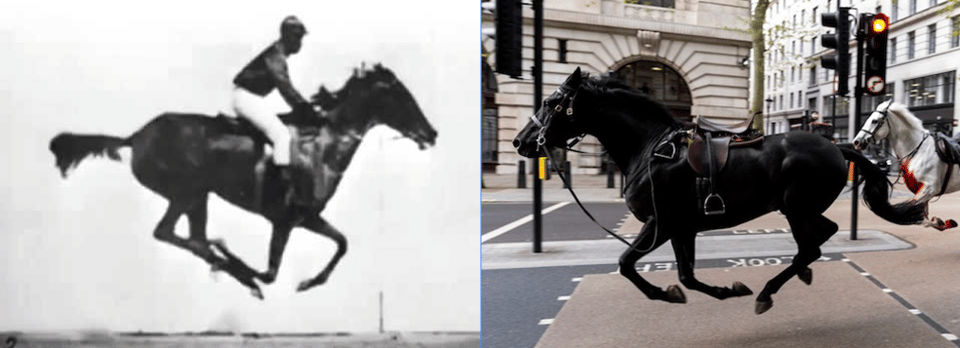
Right: Escaped horses in London (PA/Alamy)
Circulations
Towards the end of last year Dead Pixels and the FOTEA Foundation were awarded a grant by the Hivos ROOM program to explore an experimental publishing initiative. We organised an amazing multi-talented group of photographers, designers and editors to try out new ways of publishing through small screens and in specific spatializations. The results can be seen here (opens in WhatsApp) and the lessons learned were substantial, fascinating and exciting. The biggest response we got globally was for Badru’s Kampala, but Kuloba Tera’s work on circumcision rituals in Masabaland was extremely highly requested in the region itself, which brought us back to the question we asked in the first place- who are we making our images for?

You can find the Circulations website here.
Study Group
This is, of course, all related to the launch of the Networked Audience research group, which began last September at The Royal Academy of Art in The Hague. The group, which is run by Dr. Andrea Stultiens and Will under the umbrella of the MA Photography and Society, exists to learn more about how the distribution of photographs shapes the messages they transmit, and what photographers could do to better recognise the affordances of the digital realm and how they impact on our work and lives. We have been a little under the radar this year, but on June 7th there will be a symposium in Rotterdam at which several aspects of the research will come up for discussion. More news on that as it gets a little closer.
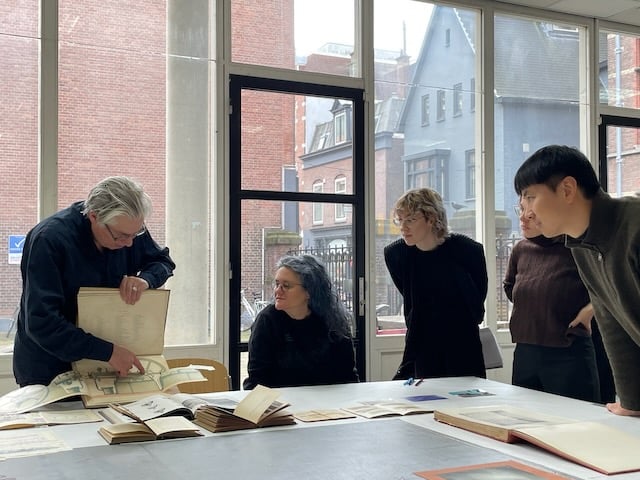
Thematic Seminar
In the autumn term Will led a thematic seminar for the MA Photography and Society at the Royal Academy of Art in The Hague, NL, as part of the Networked Audience’s contribution to the course. The outcome was this toolkit, and the participation of the students (as well as teaching support from Sophie Allerding) made the week a memorable one. Here are two of the circulation maps that resulted:
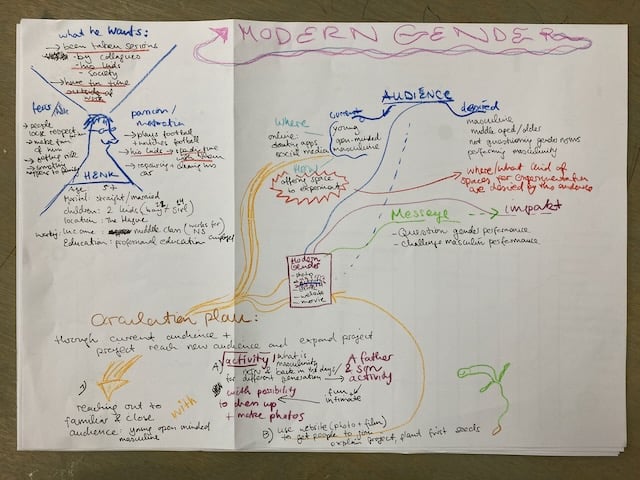
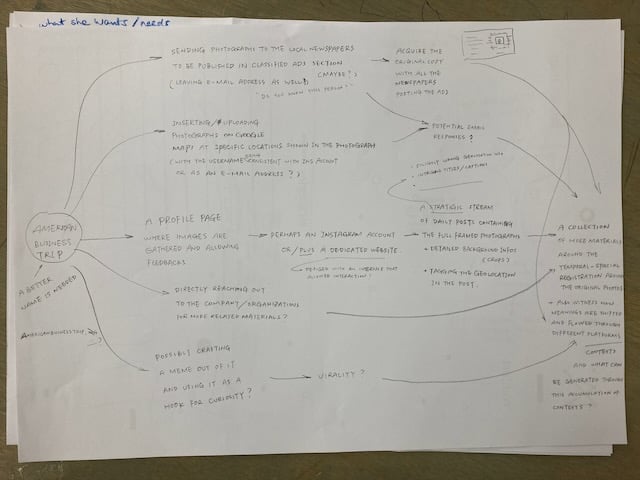
That Helsinki Feeling
Will presented the research resulting from the Circulations project at the just-concluded Helsinki Photomedia Conference 2024, where he also placed the research alongside its theoretical origins and posed some potential questions for practitioners interested in thinking along with the topic.
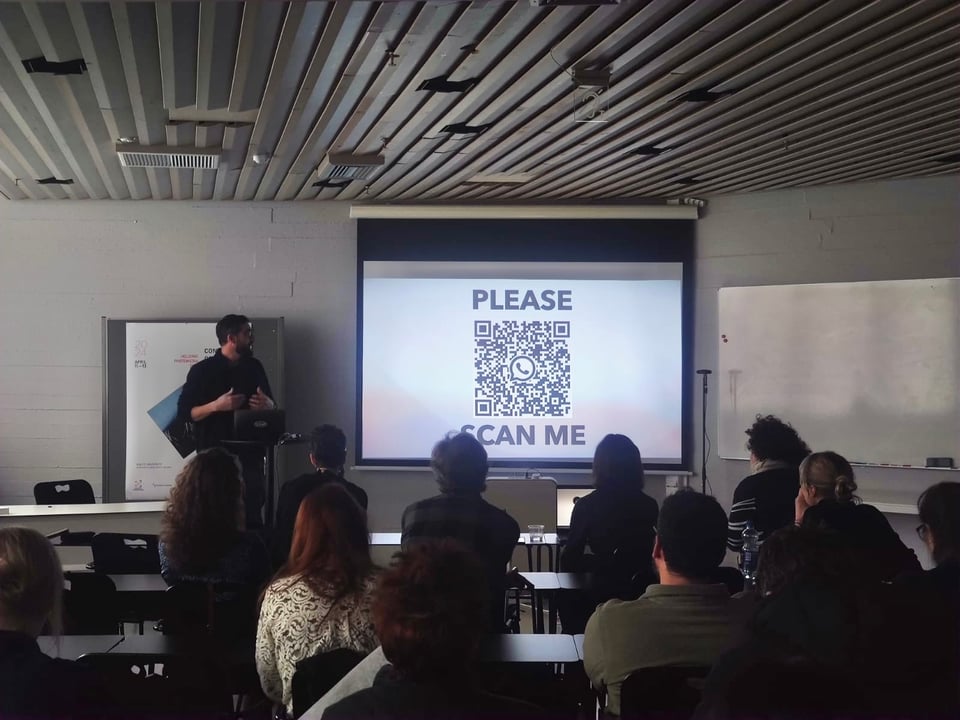
We had a great time at the conference and the city was such a treat to visit. It was great to catch up with old friends and meet new ones, and Will is now addicted to sauna life.
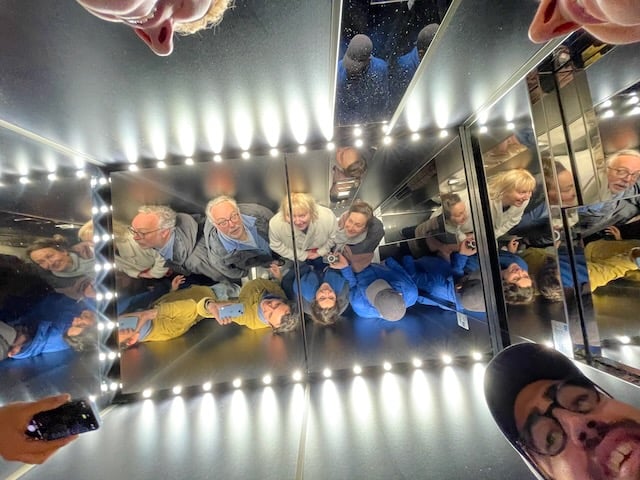
We saw too many great presentations to list them all, but we would like to mention a couple that we thought were really good, even though the talks are not online so it’s basically their word against mine:
Soma Basu - Violent Images and Parasitic Memories (Abstract)
This was a really engaging examination of the role of vernacular images in constructing, preserving and perpetuating memories of violence, and of the mobile handset’s role as an externalised visual memory. I was particularly struck by the moment when Ms. Basu showed an image of a gate which can be closed to separate a community. A great example of encoded knowledge, only decipherable by those who know or can be shown.
Danielle Arets, Michiel Bles, Karlijn ten Cate - Humanizing the Invisible: A Call for Destigmatized Photography of Homeless Young Adults (Abstract)
Gone are the days when a story about the insanity of the very existence of homelessness meant Don McCullin getting two weeks and expenses to harass the indigent. News outlets increasingly illustrate stories, particularly those addressing personally-sensitive topics, with stock images. The result is that what is available is usually what gets used, which makes the visualisation of such stories an exercise in the reinforcement of crude stereotypes. While we have some questions about the funding model undergirding this work, the project is an interesting attempt to rebalance that scale in favour of images which represent the reality of the housing crisis instead of endlessly showing (male) figures huddled on park benches. (And also, it’s not like donor-funded imagery is somehow less sustainable than bullsh*t microstock or AI bastardry). You can find the image bank here.
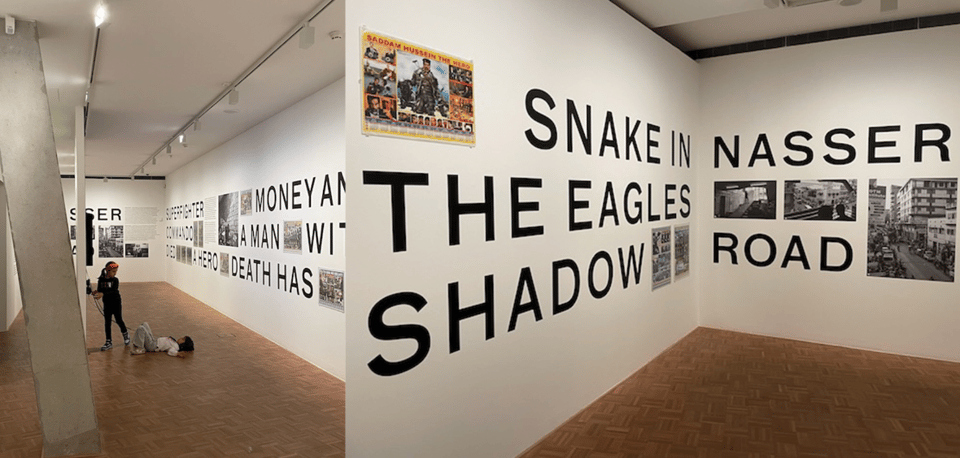
What Next For The Pixelverse?
Well, I’m glad you asked. As you may notice, this is coming from a new email host (and we apologise if you were asked to sign up again- the GDPR is great, but it’s also cumbersome). This is part of a broader push to revitalise the idea now that we’ve got a bit more time to work on it.
We are aiming for a more regular rhythm in the coming months, focusing on interviewing interesting voices who share our fascination with the future of digital visual culture in all its many forms. In the meantime if you have an idea, a thought, a response or an insult, just reply to hello@deadpixels.online.
